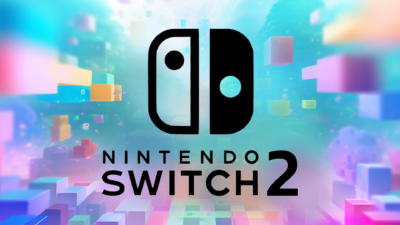Game Data-Mining: Is it Good for the Gaming Industry?

Have you met some people who always have a way of stealing the thunder from Bitcoin games by revealing gaming secrets way before the official announcements? Such people could be involved in game data mining! Collecting tons of game developers’ data, they uncover information about the games and upcoming updates. Read on to find out! We’ve got your back if you’re wondering how they do it and whether it suits the gaming industry.
What Is Game Data Mining?
Game data mining refers to the process of sieving through large amounts of coded data related to blockchain games that people play to earn Bitcoin to unearth hidden patterns and uncover secret insights. While the process is valuable in different other industries, it is especially applicable in mining games due to the increasing amounts of gaming data. Most of today’s crypto games, where players can farm free crypto instantly, generate tons of data, often including files containing valuable information.
How Does It Work?
Developers upload data files whenever they intend to update their games and use them to conduct trial runs on updates, new versions, or additional gaming features. Data miners digging through such files will quickly discover features they can predict will be included in the next game’s update. A good example is the “Animal Crossing” game, where reviewers unearthed a new upcoming character, “Leif,” and “Crazy Red,” a returning character.
Crypto game files contain a lot of information, and when people download them, they get access to a plethora of information regarding the games they love. However, since not everyone can code hidden within the game files to uncover short keywords, those with the knowledge will primarily create threads on social media sites like Twitter and include their game data mining findings. These findings, including any related keywords, are then used to offer insights on what players can expect in the subsequent software updates.
On the other hand, game developers can also collect data from players to gain insights into player behavior, tendencies, and preferences. By mining and analyzing player data, the developers can better understand the players, how they play their games, and the content they are most interested in. They can also use the data to predict what they can do best to improve the players’ experience or identify potential areas for improvement to make crypto games and NFT, such as Chainers.io, a more engaging and enjoyable experience. Ultimately, by leveraging game data mining, game developers can gain a competitive advantage and enhance the quality of the game.
Is Game Data Mining Reliable?
The answer depends on what side you want to be counted on. First, the data originates from game developers, making it a reliable source of information. Nonetheless, data miners will almost always depend on particular phrases or keywords. Still, there’s never a guarantee that they got things written, and the phrases represent something that could come up in the next update. Moreover, there’s no way of telling whether the data files miners depend on were test versions, which leaves the possibility of changes occurring before they are released as an open file.
Game data mining remains legal, but some consider the entire exercise unethical. That’s especially because game developers will mostly get frustrated when they realize players may have tapped into their development files and could quickly spoil the potential features for other gamers. There’s no doubt that developers use code names and secret codes for most gaming aspects. However, increasing knowledge in coding means some community members can easily crack the codes and predict what to expect in future game updates.
Game Data Mining – Is It Good or Bad for Gaming?
The world is becoming increasingly data-driven, meaning the topic of game data mining will continue to be a burning topic within the gaming community. Moreover, as games where players get free crypto instantly continue to gain popularity, there’s every chance that using techniques to give secret or hidden information about games will continue to prosper. Because Bitcoin games are growing daily, game data mining will continue into the foreseen future.
There are now two classes of Bitcoin game players: the first group doesn’t trouble themselves about new updates for their crypto games, while the second thrives in sifting through files so they can know what to expect in the updates. The prevailing narrative within the gaming industry is that the trouble with game data mining is making what should have been a competitive game easy to win. In situations where only a slight margin dictates who gets free crypto instantly, anyone who knows what to expect on the map can make the real difference. The moral question then among gamers remains whether the practice amounts to abetting some form of cheating.
While game data mining remains an established practice, it somehow goes against the rules of different kinds of sports. That’s because, mostly, leaks in games are likely to give players an unfair advantage. Providing information about what direction the characters are designed to take helps the player “better prepare” a position to take during the game. This practice, therefore, takes the randomness where a player puts their best foot forward without knowing how the game will go. Game data mining gives players an advantage they shouldn’t have had in the first place.
Conclusion
Mining games remain controversial in the industry, and players are divided down the middle, further complicating the issue. Gaming developers don’t appreciate that data mining reveals upcoming secrets and updates before they do. On the other hand, game data mining plays a positive role for game developers since it helps them create the oomph and excitement that new game features bring to players. The opinion is still divided on the benefits or otherwise of game data mining in gaming. Just like some TV shows or movie watchers enjoy the element of surprise while others loathe it, some gamers enjoy getting first-hand knowledge on potential updates. In contrast, others prefer not to have anything to do with it.
Alexia is the author at Research Snipers covering all technology news including Google, Apple, Android, Xiaomi, Huawei, Samsung News, and More.












